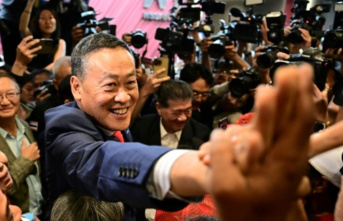The CEO of Alphabet, and Google ensures “that the history is full of examples of how the virtues of the technology are not guaranteed” and that these lessons teach us that we are to “be alert of what can go wrong”, says in an opinion piece for the Financial Times newspaper. The executive admits there is “real concern” about the potential negative consequences of AI, from the so-called deepfakes to the “uses vile” facial recognition. “there has already been work in this direction to attack these concerns, but there will inevitably be more challenges that no company or industry can solve for itself.”
Pichai had recently assumed all the power after that in early December, Larry Page, co-founder of Google, and until now the ceo of Alphabet, to leave the office and leave him in the hands of Sundar Pichai, who added this post to the CEO of Google. Likewise, Sergey Brin, founder of Google, resigned his position as chairman of the Alphabet, a charge that also will disappear from the structure of the company.
MORE INFORMATION
The EU poses to prohibit for up to five years, face recognition in public placesThe publication of this article coincides with the visit of Sundar Pichai to Brussels to meet with the commissioner responsible for Competition, Margrethe Vestager, whose work has cost Google nearly 8,000 million in fines. Pichai, in addition, will offer a speech about artificial intelligence responsible in Brussels before going to the Davos summit,
In this article already written as the first executive of the technology giant, Pichai recalls that both the EU and the US “are starting to develop proposed regulations”. Last Friday, in fact, leaked a white paper prepared by the European Commission in that it raises the possibility of banning the use of facial recognition technology in public places for a period of up to five years in order to move forward in the development of solutions that mitigate the risks.
“To get there, we need to agree on key values. Companies like ours can not only build promising new technologies and let the market forces are determined by how they are used”.
there Will inevitably be more challenges that no company or industry can solve by itself.
Google, therefore, published their own principles in order to ensure the ethical development of artificial intelligence, says Sundar Pichai in the article. “These guidelines help us to avoid prejudices, to perform rigorous tests for safety, design with privacy in mind and make technology accountable to the people,” he says. “But the principles remain on paper have no meaning,” he explains. Therefore, we have also developed tools to implement them, as to test the decisions of AI to be fair and to make independent assessments of the human rights of the new products.”
The steering indian states that have “gone even further” and have put these tools and the code open source related widely available, which will allow others to use AI to always. “We believe that any company that develops new tools of IA should also adopt guiding principles and review processes, rigorous”.
Date Of Update: 20 January 2020, 09:00










